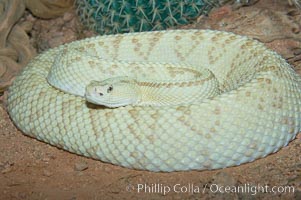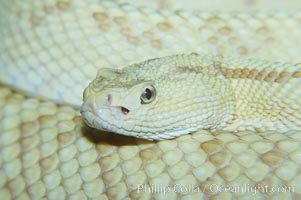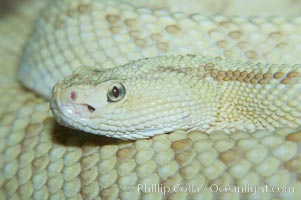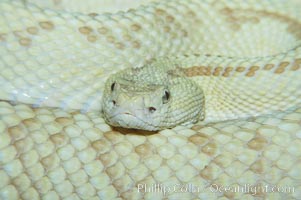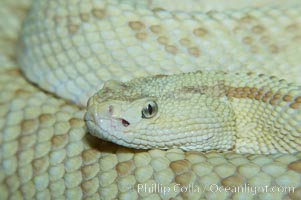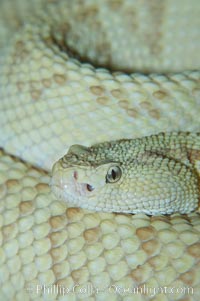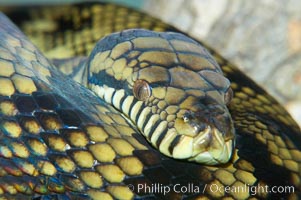
Amethystine python. The amethystine python is Australias biggest snake. They are nocturnal and arboreal, inhabiting tropical rainforests, monsoon forests and vine forests.
Species: Amethystine python, Morelia amethistina
Image ID: 12567
Species: Amethystine python, Morelia amethistina
Image ID: 12567
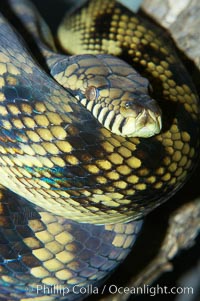
Amethystine python. The amethystine python is Australias biggest snake. They are nocturnal and arboreal, inhabiting tropical rainforests, monsoon forests and vine forests.
Species: Amethystine python, Morelia amethistina
Image ID: 12568
Species: Amethystine python, Morelia amethistina
Image ID: 12568
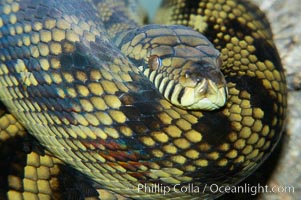
Amethystine python. The amethystine python is Australias biggest snake. They are nocturnal and arboreal, inhabiting tropical rainforests, monsoon forests and vine forests.
Species: Amethystine python, Morelia amethistina
Image ID: 12569
Species: Amethystine python, Morelia amethistina
Image ID: 12569
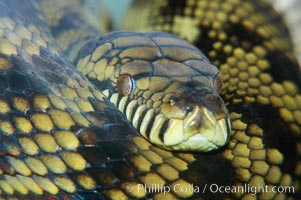
Amethystine python. The amethystine python is Australias biggest snake. They are nocturnal and arboreal, inhabiting tropical rainforests, monsoon forests and vine forests.
Species: Amethystine python, Morelia amethistina
Image ID: 12570
Species: Amethystine python, Morelia amethistina
Image ID: 12570
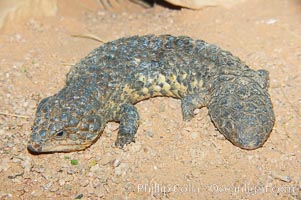
Shingleback lizard. This lizard has a fat tail shaped like its head, which can fool predators into attacking the wrong end of the shingleback.
Species: Shingleback lizard, Trachydosaurus
Image ID: 12571
Species: Shingleback lizard, Trachydosaurus
Image ID: 12571
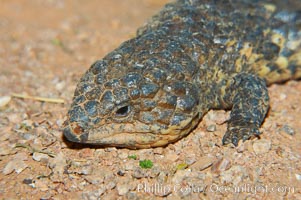
Shingleback lizard. This lizard has a fat tail shaped like its head, which can fool predators into attacking the wrong end of the shingleback.
Species: Shingleback lizard, Trachydosaurus
Image ID: 12572
Species: Shingleback lizard, Trachydosaurus
Image ID: 12572
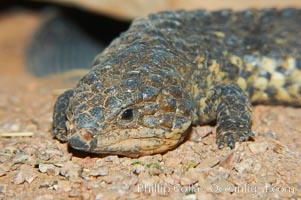
Shingleback lizard. This lizard has a fat tail shaped like its head, which can fool predators into attacking the wrong end of the shingleback.
Species: Shingleback lizard, Trachydosaurus
Image ID: 12573
Species: Shingleback lizard, Trachydosaurus
Image ID: 12573
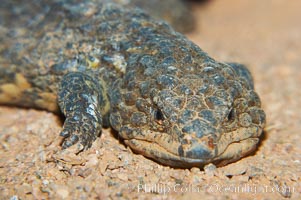
Shingleback lizard. This lizard has a fat tail shaped like its head, which can fool predators into attacking the wrong end of the shingleback.
Species: Shingleback lizard, Trachydosaurus
Image ID: 12574
Species: Shingleback lizard, Trachydosaurus
Image ID: 12574
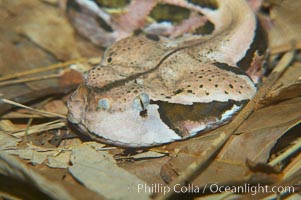
African gaboon viper camouflage blends into the leaves of the forest floor. This heavy-bodied snake is one of the largest vipers, reaching lengths of 4-6 feet (1.5-2m). It is nocturnal, living in rain forests in central Africa. Its fangs are nearly 2 inches (5cm) long.
Species: African gaboon viper, Bitis gabonica
Image ID: 12575
Species: African gaboon viper, Bitis gabonica
Image ID: 12575
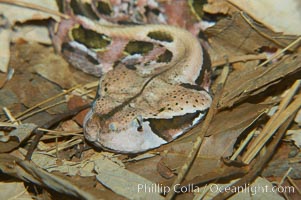
African gaboon viper camouflage blends into the leaves of the forest floor. This heavy-bodied snake is one of the largest vipers, reaching lengths of 4-6 feet (1.5-2m). It is nocturnal, living in rain forests in central Africa. Its fangs are nearly 2 inches (5cm) long.
Species: African gaboon viper, Bitis gabonica
Image ID: 12577
Species: African gaboon viper, Bitis gabonica
Image ID: 12577
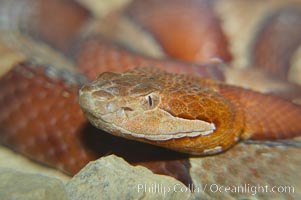
Trans-Pecos copperhead snake. The Trans-Pecos copperhead is a pit viper found in the Chihuahuan desert of west Texas. It is found near streams and rivers, wooded areas, logs and woodpiles.
Species: Trans-pecos copperhead snake, Agkistrodon contortrix pictigaster
Image ID: 12578
Species: Trans-pecos copperhead snake, Agkistrodon contortrix pictigaster
Image ID: 12578
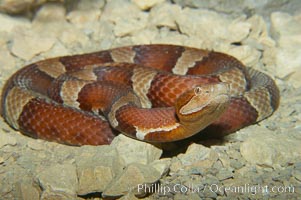
Trans-Pecos copperhead snake. The Trans-Pecos copperhead is a pit viper found in the Chihuahuan desert of west Texas. It is found near streams and rivers, wooded areas, logs and woodpiles.
Species: Trans-pecos copperhead snake, Agkistrodon contortrix pictigaster
Image ID: 12579
Species: Trans-pecos copperhead snake, Agkistrodon contortrix pictigaster
Image ID: 12579
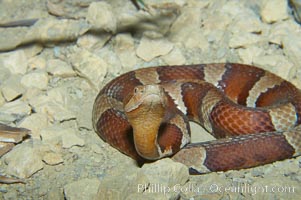
Trans-Pecos copperhead snake. The Trans-Pecos copperhead is a pit viper found in the Chihuahuan desert of west Texas. It is found near streams and rivers, wooded areas, logs and woodpiles.
Species: Trans-pecos copperhead snake, Agkistrodon contortrix pictigaster
Image ID: 12580
Species: Trans-pecos copperhead snake, Agkistrodon contortrix pictigaster
Image ID: 12580
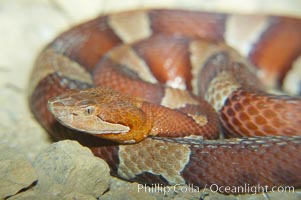
Trans-Pecos copperhead snake. The Trans-Pecos copperhead is a pit viper found in the Chihuahuan desert of west Texas. It is found near streams and rivers, wooded areas, logs and woodpiles.
Species: Trans-pecos copperhead snake, Agkistrodon contortrix pictigaster
Image ID: 12581
Species: Trans-pecos copperhead snake, Agkistrodon contortrix pictigaster
Image ID: 12581
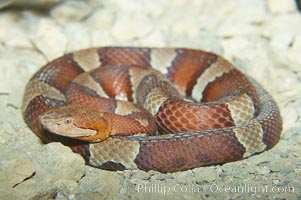
Trans-Pecos copperhead snake. The Trans-Pecos copperhead is a pit viper found in the Chihuahuan desert of west Texas. It is found near streams and rivers, wooded areas, logs and woodpiles.
Species: Trans-pecos copperhead snake, Agkistrodon contortrix pictigaster
Image ID: 12582
Species: Trans-pecos copperhead snake, Agkistrodon contortrix pictigaster
Image ID: 12582
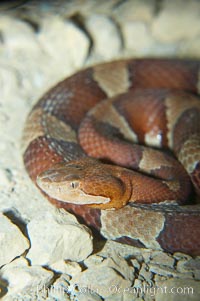
Trans-Pecos copperhead snake. The Trans-Pecos copperhead is a pit viper found in the Chihuahuan desert of west Texas. It is found near streams and rivers, wooded areas, logs and woodpiles.
Species: Trans-pecos copperhead snake, Agkistrodon contortrix pictigaster
Image ID: 12583
Species: Trans-pecos copperhead snake, Agkistrodon contortrix pictigaster
Image ID: 12583
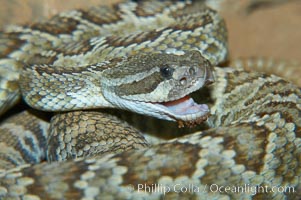
Southern Pacific rattlesnake. The southern Pacific rattlesnake is common in southern California from the coast through the desert foothills to elevations of 10,000 feet. It reaches 4-5 feet (1.5m) in length.
Species: Southern pacific rattlesnake, Crotalus viridis helleri
Image ID: 12584
Species: Southern pacific rattlesnake, Crotalus viridis helleri
Image ID: 12584
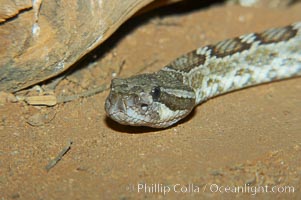
Southern Pacific rattlesnake. The southern Pacific rattlesnake is common in southern California from the coast through the desert foothills to elevations of 10,000 feet. It reaches 4-5 feet (1.5m) in length.
Species: Southern pacific rattlesnake, Crotalus viridis helleri
Image ID: 12586
Species: Southern pacific rattlesnake, Crotalus viridis helleri
Image ID: 12586
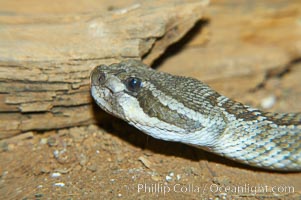
Southern Pacific rattlesnake. The southern Pacific rattlesnake is common in southern California from the coast through the desert foothills to elevations of 10,000 feet. It reaches 4-5 feet (1.5m) in length.
Species: Southern pacific rattlesnake, Crotalus viridis helleri
Image ID: 12587
Species: Southern pacific rattlesnake, Crotalus viridis helleri
Image ID: 12587
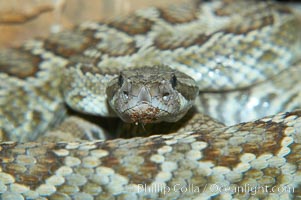
Southern Pacific rattlesnake. The southern Pacific rattlesnake is common in southern California from the coast through the desert foothills to elevations of 10,000 feet. It reaches 4-5 feet (1.5m) in length.
Species: Southern pacific rattlesnake, Crotalus viridis helleri
Image ID: 12588
Species: Southern pacific rattlesnake, Crotalus viridis helleri
Image ID: 12588
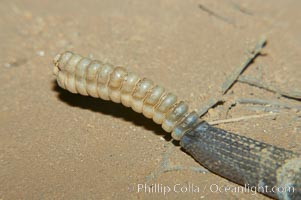
Closeup view of the rattles of an adult Southern Pacific rattlesnake. The southern Pacific rattlesnake is common in southern California from the coast through the desert foothills to elevations of 10,000 feet. It reaches 4-5 feet (1.5m) in length.
Species: Southern pacific rattlesnake, Crotalus viridis helleri
Image ID: 12589
Species: Southern pacific rattlesnake, Crotalus viridis helleri
Image ID: 12589
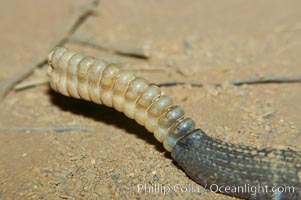
Closeup view of the rattles of an adult Southern Pacific rattlesnake. The southern Pacific rattlesnake is common in southern California from the coast through the desert foothills to elevations of 10,000 feet. It reaches 4-5 feet (1.5m) in length.
Species: Southern pacific rattlesnake, Crotalus viridis helleri
Image ID: 12590
Species: Southern pacific rattlesnake, Crotalus viridis helleri
Image ID: 12590
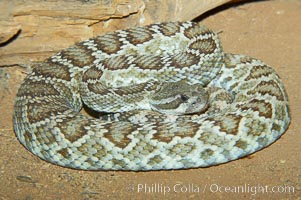
Southern Pacific rattlesnake. The southern Pacific rattlesnake is common in southern California from the coast through the desert foothills to elevations of 10,000 feet. It reaches 4-5 feet (1.5m) in length.
Species: Southern pacific rattlesnake, Crotalus viridis helleri
Image ID: 12591
Species: Southern pacific rattlesnake, Crotalus viridis helleri
Image ID: 12591
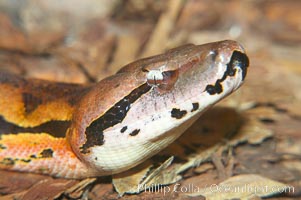
Malagasy ground boa. The ground boa is the largest boa species in Madagascar, reaching 10 feet (3m) in length. Its coloration provides excellent camouflage amid rocks, logs and bushy thickets. It is mainly nocturnal, hunting birds and small mammals.
Species: Malagasy ground boa, Acrantophis madagascariensis
Image ID: 12594
Species: Malagasy ground boa, Acrantophis madagascariensis
Image ID: 12594
